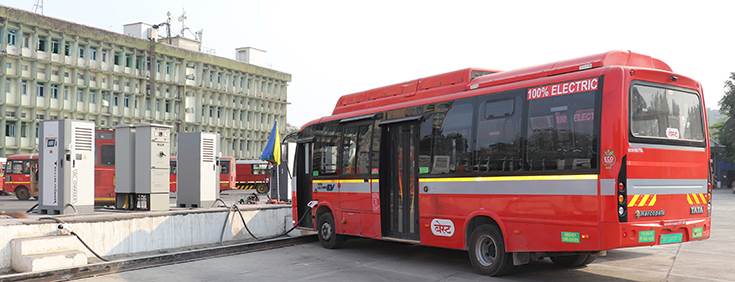With EV ownership becoming rapidly popular, Tata Power, one of India’s leading integrated power companies, plans to expand its EV charging points across India to over 25,000 over the next five years. This reiterates the company’s future network growth strategy it had announced at Auto Expo 2023, where it had showcased a comprehensive range of hi-tech EV charging solutions.
As the largest EV charging point operator with a nearly 60% market share in the country, the Tata Group company has already installed over 40,000 home chargers, around 4,000 public and semi-public charging points, and 250 bus charging points.
The company has a mobile app for EV charging – Tata Power EZ Charge – which enables a seamless user experience through features designed to help EV users locate the nearest charging station, know the real-time availability of charging points, and also receive updates on charging status.
Tata Power, which currently has a presence in 550 cities, offers charging solutions for homes, workplaces, fleet stations, public locations, and commercial junctions like e-bus charging depots. Many of these charging stations are also equipped with fast charging technology and located at strategic locations such as malls, hotels, airports and office complexes.

A BEST public transport bus gets its e-power at a charging depot in Mumbai.
Network Operations Centre
For effective operational management of all-India charging points, Tata Power has set up a state-of-the-art Network Operations Centre (NOC). The NOC provides the backbone for charging support. The centre has a real-time communication link with all the on-board chargers and is integrated with the digital platform that supports EV charging services of Tata Power. It plays a key role in the proactive identification of issues, and quick resolution in case of any technical snag through maintenance teams. This centre is responsible for providing back-end system support, quick resolution of issues, and ensuring proactive charging infrastructure maintenance planning.
The company is also facilitating intercity and interstate EV drives with its presence on more than 60% of India’s existing national highways. It has a presence on India’s longest and busiest highways. Key city connections include Delhi-Chandigarh, Delhi-Agra, Delhi-Dehradun, Delhi-Jaipur, Mumbai-Goa, Mumbai-Lonavala, Mumbai-Pune, Hyderabad-Warangal, Hyderabad-Vijaywada, Bengaluru-Chennai, Bengaluru-Mysore.
Tata Power’s strategic goal to create an EV enabling infrastructure is in line with the government of India’s National Electric Mobility Mission Plan (NEMMP), which aims to develop electric vehicle charging infrastructure using the latest technological platform along with easy access to charging points.
The company has also collaborated with the National Real Estate Development Council (NAREDCO) last year to install up to 5,000 EV charging points across its members developer properties in Maharashtra.
ALSO READ: Over 2.5 million EVs sold in India since 2014
EV sales in India surpass 150,000 units for the first time in May
